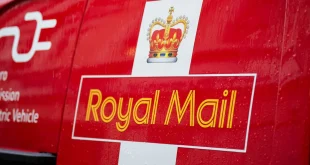MARKET WRAPS
Watch For:
Eurozone New Passenger Car Registrations; OECD Quarterly National Accounts; speech by Christine Lagarde; updates from ThyssenKrupp, Banco Bilbao Vizcaya, TotalEnergies, Enel, Zurich Insurance, National Grid, Investec, Halma, Royal Mail, Pershing Square, Fuller Smith & Turner, Micro Focus, SSAB, National Grid, CNH Industrial
Opening Call:
Continued worries over inflation and a weaker finish on Wall Street will likely keep Europe in check on Thursday. In Asia, stocks were mostly lower, along with the dollar, Treasury yields and oil, while gold traded flat.
Equities:
A largely subdued opening session is in prospect for Europe on Thursday, after U.S. stock indexes edged lower and with little in the way of major economic data slated.
The Dow ended 200 points lower on Wednesday, but large-cap tech stocks outperformed as Treasury yields receded.
Nagging concerns about inflation and the economic recovery from Covid-19 have held markets in check, but a lack of alternatives and hope that consumers can continue to serve as a pillar of the economic rebound are supporting gains and a fitful rotation into sectors of the market.
“To get the market moving higher, you probably want to see some signs of inflation moderating,” said Giorgio Caputo, head of multi-asset value at JO Hambro Capital Management. “I don’t know that we will get those in the next few months,” he said. “We might. But mostly likely it will take a little longer.”
Forex:
The dollar eased further in Asia with the yen strengthening against most G-10 currencies as sentiment turned more cautious.
There’s a cautious risk backdrop, said Commerzbank, noting ongoing concerns over inflationary pressures and increasing Covid-19 cases in the U.S. and Europe.
ING expects the euro to fall to $1.10 by the fourth quarter of 2022 as it sees the Federal Reserve raising interest by next summer while the European Central Bank is likely to hold rates.
U.S. rate rise expectations are some 40-50 basis points below the Fed’s projections. For ECB rates, nearly 30 bps of tightening was expected for 2022 at one point, ING said.
“We view that pricing as extreme and unlikely, although it may take eurozone inflation dipping into next spring–the German VAT hike rolling out of calculations helps–before the market backs away from that kind of pricing.”
ING also said sterling is likely to hold onto this year’s gains in 2022 as the Bank of England raises interest rates.
A “reasonably healthy U.K. growth profile” next year should allow the BOE to lift its benchmark rate by 15 basis points in December and a further 50bps in 2022, ING said. That will provide sterling with a cushion against the dollar strengthening on the prospect of the Fed lifting rates in 2022.
Sterling will strengthen against the euro as the ECB keeps rates unchanged, with ING seeing GBP/USD at 1.34 and EUR/GBP at 0.82 by the fourth quarter of 2022.
Bonds:
Treasury yields continued to drop across the board in Asia, as investors remained focused on the risk that tighter Fed policy will hurt the U.S. recovery.
Investors generally agree the Fed will raise interest rates next year to fight inflation but there is more debate about how high rates will need to rise from there, causing fluctuations in longer-term yields but a generally shrinking gap between short and long-term yields.
Nordea said how the Fed reacts to inflation remains a central discussion among investors. “What the market is considering is how long can the U.S. consumer continue to spend while his real income is declining.”
The reality “is that the Fed has been on a steady but slow course towards a more hawkish stance and that course is likely to continue – far too late to temper the global asset bubble we are in.”
Deutsche Bank now expects the Fed to begin raising rates in July, or even earlier, rather than its previous forecast of December 2022, with another increase in November followed by three in 2023 and three more in 2024, eventually bringing the Fed funds rate to 2.1%.
“Relative to our baseline expectation, we see greater risks of three rate increases next year than one.” The move reflects higher-than-expected inflation and Deutsche Bank acknowledges the liftoff could be delayed if it weakens. Labor tightness is another factor.
Energy:
Crude futures extended their retreat in Asia on reports that President Biden sought ways to lower the price of gasoline for U.S. consumers.
Oil logged its lowest finish since early October on Wednesday, weighed by reports that a joint release of crude supplies was discussed by Biden and Chinese leader Xi Jinping in their virtual meeting earlier this week.
The weekly EIA report on Wednesday, despite showing a large fall in inventories, did little to stop the selling, ANZ said, noting the bearish tone from the IEA and OPEC in their monthly oil market reports earlier this week also may have weighed on sentiment.
Coking coal prices are likely to decline over the fourth quarter of 2021 to the first quarter of 2022, as a weak Chinese property-sector outlook and increased domestic production weigh on imports into the country, Fitch said.
Coking coal, used to make steel, is likely to track recent declines in ferrous-metal prices as demand for construction materials weaken.
However, Fitch said coking coal is likely to find longer-term support. The supply shortage that Chinese steel mills faced earlier in the year are encouraging them to increase forward coal purchases and maintain larger inventories, potentially pushing up demand over 2022-2023.
Metals:
Gold prices were steady after they hit their highest settlement since June on Wednesday on inflation concerns and a weaker dollar.
Inflation concerns and the realization that inflation is not under control are “real and not just in the financial markets when it becomes an issue addressed by major retailers, as the market is looking for more clarity,” Jeff Wright, chief investment officer at Wolfpack Capital. “Gold has responded by moving higher and establishing higher floors of support over past month or so,” he said.
The risk-off sentiment also weighed on copper, with ANZ highlighting worries that inflation and a resurgence of Covid-19 could challenge the global economic recovery.
Chinese iron-ore futures slumped, with the most-traded January contract on the Dalian Commodity Exchange dropping 4.6% to its lowest level since April 2020.
Authorities tightened measures for some steel mills in the steelmaking hub of Tangshan on Wednesday, said Huatai Futures. Since the third quarter, steel consumption has “fallen off the cliff” amid stringent controls on the Chinese property sector, causing steel prices to decline rapidly, Huatai said.
This has weighed on prices of iron ore, which don’t have any positive catalysts and are consistently weaker.
TODAY’S TOP HEADLINES
Fed’s Waller: Stablecoins Could Be Healthy Form of Payment System Competition
Federal Reserve governor Christopher Waller said on Wednesday there can be value in private money designed to match the stability of conventional currencies, and offered some views on how regulators might want to oversee and ensure the safety of this new part of the payment system.
“The United States has a long history of developing, refining and integrating new payment technologies in ways that maintain the integrity of its financial institutions and its payment system,” Mr. Waller said in a virtual appearance. So-called stablecoins “may be new, but their economics are far from it,” the central banker said.
U.S. Climate Risk Guidance Will Be in Line With Global Principles, Bank Regulator Says
The acting head of the U.S.’s top banking regulator called for banks to be screened for climate risk as part of their periodic stress tests and said the agency’s own regulatory approach was focused on maintaining the safety and soundness of the financial system.
“Banks face all sorts of risks everyday-credit risk, market risk, liquidity risk,” said Michael Hsu, acting comptroller of the currency. “What’s emerging now is that climate change is going to be impacting a number of those risks in different ways, and we need banks to prepare for that.”
Turkish Lira Tumbles After Erdogan Renews Call for Unorthodox Rate Cuts
Turkey’s currency slid for the seventh day in a row, propelled by fears that the country’s central bank will allow raging inflation to overwhelm the economy.
The lira shed 2.7% of its value against the dollar Wednesday, giving the emerging market currency a slide of nearly 10% in 10 days. The lira is the worst-performing major emerging market currency of the year and is on course for its ninth consecutive year of declines, down almost 30% this year.
Biden Asks FTC to Examine Oil, Gas Companies’ Role in High Gasoline Prices
WASHINGTON-President Biden called on the Federal Trade Commission to investigate whether oil-and-gas companies are participating in illegal conduct aimed at keeping gasoline prices high, in the latest effort by the White House to respond to public concerns about costs for everything from fuel to groceries.
Outside analysts expressed skepticism that the FTC would find enough evidence to substantiate Mr. Biden’s allegations, and they said the president has few options for quickly lowering gasoline prices.
Big Winners From Natural-Gas Crunch: Coal Power Plants in Europe
Coal power plants are running at full tilt in parts of Europe and enjoying a rare bout of massive profitability, a setback to efforts to cut carbon emissions.
Under Europe’s climate policies, this shouldn’t be happening. The European Union and U.K. pushed world leaders, unsuccessfully, to back an end to coal consumption at the Glasgow summit on climate change. Both have markets for emission permits that are designed to pinch profit at polluters such as coal-fired power stations and funnel capital toward greener energy.
Belarus Moves Some Migrants Away From Poland’s Border
(MORE TO FOLLOW) Dow Jones Newswires
November 18, 2021 00:42 ET (05:42 GMT)
Copyright (c) 2021 Dow Jones & Company, Inc.
Source link


